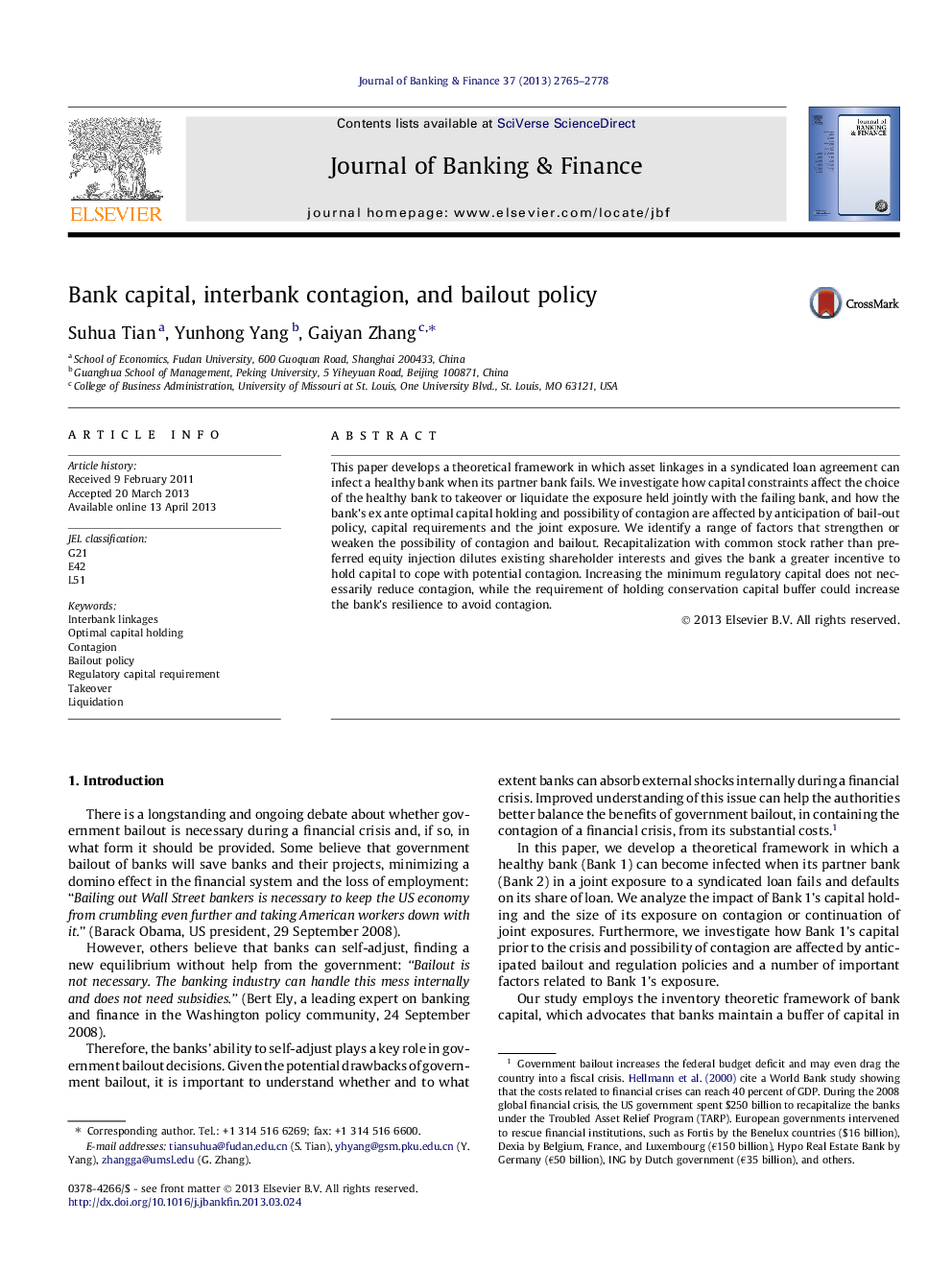| Article ID | Journal | Published Year | Pages | File Type |
|---|---|---|---|---|
| 5089276 | Journal of Banking & Finance | 2013 | 14 Pages |
â¢We model interbank contagion due to common exposure to a syndicated loan agreement.â¢We examine factors that strengthen or weaken the possibility of contagion.â¢Recapitalization with common stock provides better incentive impacts.â¢We distinguish impacts of the minimum and the conservation buffer of Basel III.
This paper develops a theoretical framework in which asset linkages in a syndicated loan agreement can infect a healthy bank when its partner bank fails. We investigate how capital constraints affect the choice of the healthy bank to takeover or liquidate the exposure held jointly with the failing bank, and how the bank's ex ante optimal capital holding and possibility of contagion are affected by anticipation of bail-out policy, capital requirements and the joint exposure. We identify a range of factors that strengthen or weaken the possibility of contagion and bailout. Recapitalization with common stock rather than preferred equity injection dilutes existing shareholder interests and gives the bank a greater incentive to hold capital to cope with potential contagion. Increasing the minimum regulatory capital does not necessarily reduce contagion, while the requirement of holding conservation capital buffer could increase the bank's resilience to avoid contagion.
